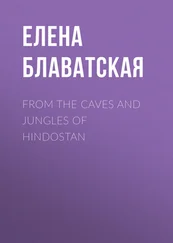Martin Walker - The Caves of Perigord
Здесь есть возможность читать онлайн «Martin Walker - The Caves of Perigord» весь текст электронной книги совершенно бесплатно (целиком полную версию без сокращений). В некоторых случаях можно слушать аудио, скачать через торрент в формате fb2 и присутствует краткое содержание. Жанр: Триллер, на английском языке. Описание произведения, (предисловие) а так же отзывы посетителей доступны на портале библиотеки ЛибКат.
- Название:The Caves of Perigord
- Автор:
- Жанр:
- Год:неизвестен
- ISBN:нет данных
- Рейтинг книги:4 / 5. Голосов: 1
-
Избранное:Добавить в избранное
- Отзывы:
-
Ваша оценка:
- 80
- 1
- 2
- 3
- 4
- 5
The Caves of Perigord: краткое содержание, описание и аннотация
Предлагаем к чтению аннотацию, описание, краткое содержание или предисловие (зависит от того, что написал сам автор книги «The Caves of Perigord»). Если вы не нашли необходимую информацию о книге — напишите в комментариях, мы постараемся отыскать её.
The Caves of Perigord — читать онлайн бесплатно полную книгу (весь текст) целиком
Ниже представлен текст книги, разбитый по страницам. Система сохранения места последней прочитанной страницы, позволяет с удобством читать онлайн бесплатно книгу «The Caves of Perigord», без необходимости каждый раз заново искать на чём Вы остановились. Поставьте закладку, и сможете в любой момент перейти на страницу, на которой закончили чтение.
Интервал:
Закладка:
“So am I,” he said. “Like a very foolish young boy.”
She put her hand to his mouth to silence him, gazing at him with a kind of fascination as if he had told her an extraordinary secret. Her hand moved to his cheek, became a caress, and she leaned down to kiss his lips. The kiss lingered and he stroked her hair, feeling the soft mass of it. She sat up briefly, and her breasts thrust forward against her white coat as she put her hands to her head to loosen some pins and the hair tumbled down. He stroked her breasts through the cloth; she shook her head to send her hair dancing loose about her face, and her face softened into a very secret smile and she helped him undo the buttons.
“Not before the war, and not after the war,” she said finally as they lay, spent and entwined, sharing one of the English cigarettes Francois had left him. “Just now. That’s all there is. Just a little time for us.”
CHAPTER 13
Time: The Present
The director of the Lascaux cave was waiting to greet them. He seemed to have been waiting some time. Awed by the eminence of his visitor, he had a fresh haircut and wore an obviously new shirt and tie. Alongside him stood half a dozen members of the staff, some of them from the duplicate cave for the tourists that lay farther along the hillside. There were guides and a gardener, an electrician and a woman who ran the refreshment kiosk. Malrand solemnly shook each of them by the hand, and Clothilde kissed cheeks with the guides. The director gave them each white coats, new hard hats, and plastic overshoes.
“Much of the damage was done not just by the breath of the visitors, as you sometimes hear, but from the microorganisms carried in on their shoes,” the director explained. He bent obsequiously to tie his President’s overshoes, and rose to hand him a small face mask. Lydia, who had begun to presume this was almost a customary postprandial treat for Malrand’s guests, suddenly realized the director had never met his President before. This was a rare occasion. She felt honored, but inquisitive as ever.
“But were not the microorganisms similar to those already here?” Lydia asked.
“They have changed. Benzene, fertilizers-the very air we breathe is infused with our own modernity. We must protect the cave against it. The first problem we suffered was the green disease, a kind of plant growth that was probably helped by the warmth of the lighting system in the damp air. The second problem was the white disease, the tendency of the calcite crystals to grow in such conditions, helped by the carbon dioxide breathed out by more than a million visitors.” It had the sound of a prepared speech, Lydia thought. He’s probably said it a hundred times. “Remember that the cave had been sealed in its pristine environment for seventeen thousand years, until a tree fell in a storm in September 1940, and young Marcel Ravidat took his dog for a walk. The dog fell down the hole left by the tree, and Marcel went down to rescue it. He came back with some school friends, and they explored the cave and found the paintings. They told their teacher, a Monsieur Leon Laval, and he contacted the greatest living expert on prehistoric art, the Abbe Henri Breuil, who came almost at once and stayed to marvel.”
He unlocked an iron door and led them into a dark tunnel, lit only by a dim blue light, which gave way to a chamber with smoothed walls, and then a flight of steps downward. It smelled quite dry, and not in the least musty. He opened another door, and guided them into pitch darkness. Lydia, recalling her visit to the copy of the cave and telling herself to expect a rather less impressive sight of slightly faded paintings, despite the undeniable thrill of the original, braced herself for a mild disappointment.
Then the director threw a switch, and a long, deep chamber, perhaps fifty yards long and ten yards wide, flooded with a cold, bright halogen light. Lydia heard the others gasp, and Manners cry out and protectively clutch her arm, as a great herd seemed almost to leap upon them.
Bulls, she thought. Giants from another age. The great bulls of Lascaux, on each side of her, rising. No, towering into the ceiling, and given depth and mass by the other beasts around them. She saw horses and great deer with monstrous antlers, and then what seemed almost a unicorn. My God, she thought, all sense of fear gone, her instant reaction of alarm replaced by a sense of enchanted wonder, the bulls are dancing.
Manners released her arm and stepped two paces forward, and began to spin slowly, taking in the great painted arc of roof above their heads, the beasts before them and behind, spinning and moving as if he were dancing too. His arms stretched out dreamily, his trunk swayed, his glowing face seemed at sublime peace. And realizing that she had suppressed this thought too long, Lydia knew that she wanted to bed this man.
She sensed her own feet follow unbidden, unable to stay still, unable to focus upon any one image as the animals seemed to swirl and lumber around her. She heard Manners laugh with pure joy, and her own delight surged too. She could not be silent and laughed exultantly in turn as she stepped forward. Manners, his face beaming at her, took her hand, raised it high, and twirled her as if on a dance floor. She heard Clothilde join the laughter, and Malrand start to clap his hands together, half-mockery, half-salute.
And then the darkness fell once more as the director turned off the lamps. An utter blackness, freezing her, chilling her, holding her in place as the sense of the still-looming bulls began to invade her joy. A spark, as rude as lightning, and then a tiny glow, like a feeble candle, was in the director’s hand. He moved forward, taking the dim light to a great black bull with a speckled face, two horses seeming to race beneath it, and another red horse with a black mane running at its shoulder.
“This is one of the lamps they used,” came the director’s voice, soft and low, almost sepulchral. “It is made of stone, a small bowl hollowed out to hold tallow and a juniper wick. It reaches but one image at a time, one beast at a time, each taking its place in this pantheon of prehistory.”
A complete silence fell as they all stood immobile in place, Lydia and Manners still joined by their raised hands, frozen in minuet. The director flicked on a small but very powerful torch, and played it deliberately from beast to beast, picking out faces that became distinct personalities. A big black bull to the right, its horns raised as if in challenge. Two to her left seemed to face each other almost genially, one almost jaunty with the cock of its forward legs, the other placidly bovine, looking almost surprised.
“When I first saw it by the light of a small electric torch, I thought they would devour me,” said Malrand. “Then I looked at their faces, and they seemed almost friendly.”
“When I first saw this, I wanted to dance too, dance and sing,” Clothilde said. “This is a joyous place, solemn but filled with delights. The whiteness of the chalk makes it so light, even with a feeble candle. Even in total darkness, you know that it but waits for the smallest glow of light. This is how churches should be. If they were, perhaps I might attend them.”
“Perhaps that is why Abbe Breuil called it the Sistine Chapel of prehistoric man,” said Malrand. “Their God might not have borne much resemblance to our own, but their sense of worship seems very close to us. A little happier, perhaps, more at ease with the life around them. I think I understand your teacher, Clothilde, your Leroi-Gourhan, who felt it was all a balance between the male and female principle. This is a sensual place. There is sexuality here.”
“There is movement, too, Monsieur le President,” said the director, shifting his torch to the right. “See the great black bull. Is he guarding or is he challenging, about to charge? But look where he points.” The torch flicked to an opening at the end of the cave, an opening half-blocked by more paintings. He led them toward it.
Читать дальшеИнтервал:
Закладка:
Похожие книги на «The Caves of Perigord»
Представляем Вашему вниманию похожие книги на «The Caves of Perigord» списком для выбора. Мы отобрали схожую по названию и смыслу литературу в надежде предоставить читателям больше вариантов отыскать новые, интересные, ещё непрочитанные произведения.
Обсуждение, отзывы о книге «The Caves of Perigord» и просто собственные мнения читателей. Оставьте ваши комментарии, напишите, что Вы думаете о произведении, его смысле или главных героях. Укажите что конкретно понравилось, а что нет, и почему Вы так считаете.












